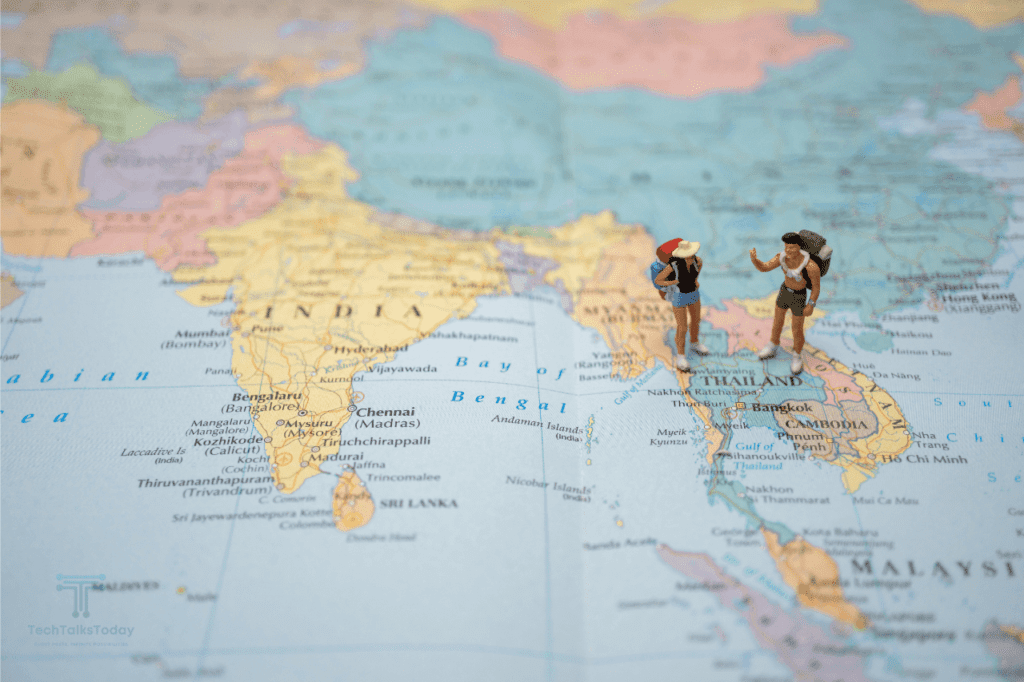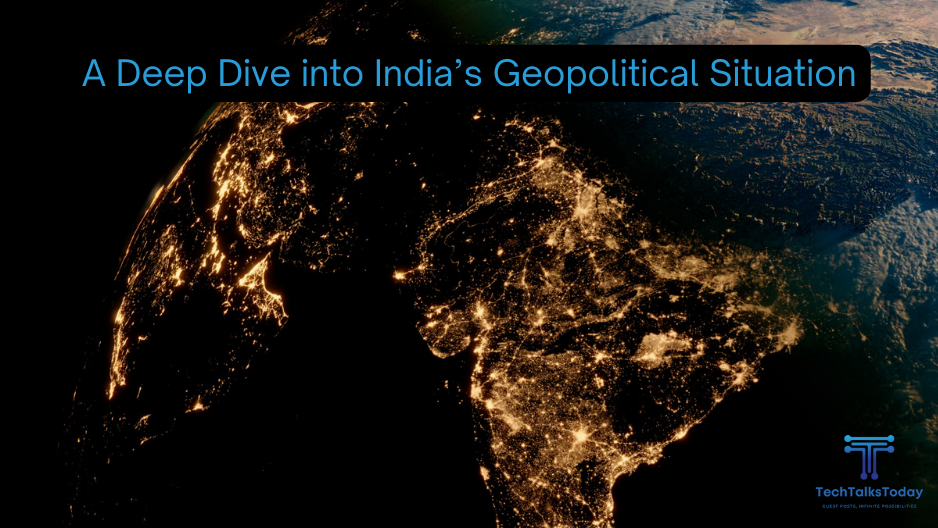As of last January 2023, I can provide you with a general overview of India's geopolitical situation. However, keep in mind that geopolitical dynamics are subject to change, and it's advisable to check more recent sources for the latest information.
India is playing well in South Asia and significantly impacts regional and global geopolitics. Below are some key points related to India's geopolitical situation:
Economic Growth:
- India is one of the world's fastest-growing major economies, and its economic growth has geopolitical implications. The country's economic rise has increased its influence on global economic and political matters. GDP growth is the best indicator of economic health. India's GDP growth rate can be affected by factors such as domestic consumption, government spending, culture, exports, etc.
- Investigation within education and skill development is essential for prolonged economic growth. Wide Infrastructure, including transportation, energy, communication networks, and EVs is essential for economic development.
Security Challenges:
- India faces security challenges, including terrorism and insurgency, particularly in regions like Jammu and Kashmir in the context of its relations with Pakistan.
- The swift economic and military rise of China poses challenges for India. The border disputes, competition for regional influence, and divergent geopolitical interests contribute to a complex relationship between the two huge Asian countries.
Neighboring Countries:
- China: India shares a complex relationship with China, characterized by territorial disputes, economic competition, and occasional cooperation. The Line of Actual Control (LAC) remains a contentious issue in the Himalayan region.
- Pakistan: Relations between India and Pakistan have historically been strained, primarily due to territorial disputes, especially over Kashmir. The security situation is main concern for region.
- India's relations with its immediate neighbors play a crucial role in regional stability. While forging closer ties with Bhutan, Bangladesh, and Sri Lanka through its "Neighborhood First" policy, tensions with Pakistan persist, casting a shadow on regional cooperation. Managing this intricate web of relationships necessitates a multi-pronged approach, balancing strategic interests with diplomacy and dialogue. On the global stage, India is actively building strategic partnerships with major powers like the US, Japan, and Australia, forming the Quadrilateral Security Dialogue (QUAD) to counter China's growing influence in the Indo-Pacific region. These partnerships serve as counterweights and provide avenues for economic and security cooperation.

Cybersecurity and Technology:
- India, like many other nations, is actively involved in the realm of cybersecurity and technology. The country's advancements in information technology contribute to its geopolitical standing.
- India's tech prowess is a rising star on the global stage. Its IT industry is a major contributor to the economy, attracting investments and showcasing its talent pool. However, cybersecurity threats pose a significant challenge, demanding robust infrastructure and advanced capabilities to protect critical data and infrastructure. Embracing cutting-edge technologies like artificial intelligence and Big Data will be crucial for India to maintain its competitive edge and address challenges like climate change and resource management.
- Considering India's Geopolitical Situation, as digital connectivity increases, cybersecurity threats have become a major concern. India faces big challenges in securing its critical infrastructure, not only from common cyber threats but also from nation-state actors with whom it has strained relations. The ongoing border tensions and political rivalries add another layer of complexity to the issue, making it crucial to develop robust cybersecurity measures and international cooperation.
- Advanced technology and innovation can play a crucial role in addressing these challenges. By investing in indigenous cybersecurity solutions and fostering a culture of innovation, India can secure its critical infrastructure, protect its citizens' data, and counter cyberattacks more effectively. This can also create new economic opportunities in the cybersecurity sector, contributing to India's overall growth and development.
Strategic Partnerships:
- India has been strengthening its strategic partnerships with various countries, including the United States, Japan, Australia, and in the European Union. These partnerships often focus on economic cooperation, defense ties, and geopolitical alignments.
Global Governance:
- India aspires to have a greater role in global governance institutions like the United Nations, seeking reforms in the Security Council to reflect contemporary geopolitical realities.
Regional Influence:
- India seeks to play a significant role in regional stability and development. Initiatives such as the 'Neighborhood First' policy aim to enhance cooperation with neighboring countries for mutual benefit.
Energy Security:
- Securing a stable and diversified energy supply is crucial for India's growing economy. Geopolitical considerations influence the country's energy policies and international partnerships.
- Modern India focuses on expanding renewable energy sources, such as solar and wind power, to achieve energy security while addressing environmental concerns. A shift towards cleaner and sustainable energy enhances long-term geopolitical resilience.
Conclusion: India's Geopolitical Tightrope Walk
India's geopolitical situation presents a fascinating yet intricate picture. The world's largest democracy and a rising economic powerhouse, India navigates a tightrope walk amidst opportunities and challenges. Its economy might translate to global influence, but security concerns like border disputes and terrorism demand constant vigilance. Balancing regional relationships, forging strategic partnerships, and securing its energy future are crucial aspects of its geopolitical journey.
Key Takeaways:
- India's economic rise translates to geopolitical clout, but sustaining it requires investments in education, infrastructure, and technology.
- Border disputes, internal threats, and complex relations with neighbors necessitate strategic maneuvering and a multi-pronged approach.
- Partnerships with major powers like the US and Japan, along with initiatives like the QUAD, provide counterweights and avenues for cooperation.
- India's tech industry shines, but robust cybersecurity measures are vital to protect critical infrastructure and data.
- India seeks reforms in global institutions like the UN Security Council, reflecting its growing weight in shaping global norms.
- Diversifying energy sources towards renewables like solar and wind power is crucial for long-term energy security and sustainability.

